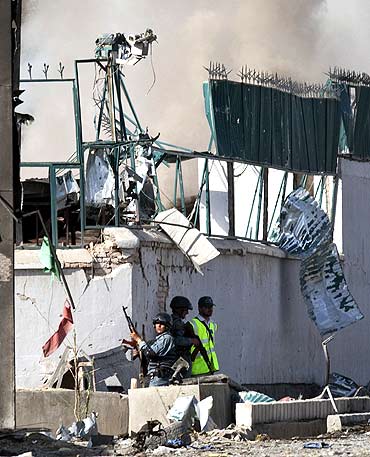
The 19 August attack on the British Council compound in Kabul had the necessary SIR elements -- Surprise, Intricacy and Retribution.
It demonstrated yet again a complex combination of tactics adopted to perfection by the Taliban-Al Qaeda network world over -- suicide attackers exploding themselves to create confusion, an explosive-laden vehicle breaching the wall of the target compound to facilitate the entry of a group of attackers and finally, the armed attackers entering the compound with a purported objective of creating a hostage situation and killing of the enemy nationals.
(Dr Bibhu Prasad Routray served as Deputy Director in India's National Security Council Secretariat and Dr Shanthie Mariet D Souza is a Visiting Research Fellow at the Institute of South Asian Studies, National University of Singapore.)
...
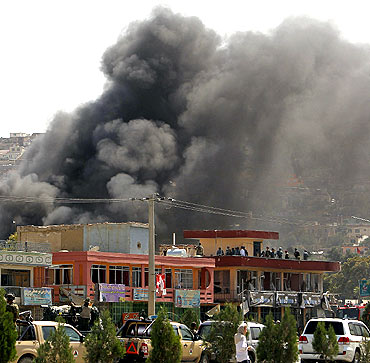
Few questions would possibly remain unanswered. Whether the Taliban wished to carry out the attack on the British mission and the United Nations in the first place and had to settle for the relatively less secured British Council compound?
The British Council is a more of a public place compared to the diplomatic missions and is protected jointly by Afghan and Gurkha security forces.
Eight Afghan security forces and a lone Special Air Service trooper from New Zealand were killed in the attack. New Zealand's SAS runs a quick reaction force for Kabul and had reached the attack site within minutes of the attack.
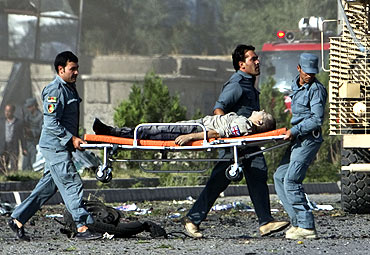
All the British nationals were safely removed from the compound to a nearby safe house.
The Long War Journal said that the attack was likely carried out by the Kabul Attack Network, made up of fighters from the Taliban, the Haqqani Network, and Hizb-i-Islami Gulbuddin, and cooperates with terror groups such as the Lashkar-e-Tayiba and Al Qaeda.
Quoting unnamed Afghan intelligence officials it said that the KAN is linked to Pakistan's Inter-Services Intelligence. The KAN's tentacles extend outward from Kabul into the surrounding provinces of Logar, Wardak, Nangarhar, Kapisa, Ghazni, and Zabul, it further said.
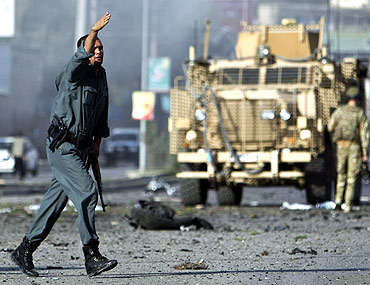
The initial statement by the Taliban spokesperson claimed attacks on the British consulate and the UN, though later he refined the statement. "We attacked the buildings because we want to remind the British that we won our independence from them before and we will do it again", he said in his second statement.
British had, however, never colonised Afghanistan. The 1919 Treaty of Rawalpindi that had ended the third Anglo-Afghan war had enforced a clause that the British empire would never reach beyond the Khyber Pass.
Taliban's attempts at hyping up the rhetoric apart, the 19 August attack was indeed a "big one", just like the 28 June 2011 attack on Kabul's Inter Continental Hotel, which killed about 10 civilians and ended with the NATO helicopters killing three Taliban members on the hotel's rooftop.
On both occasions the attackers managed to achieve all their objectives and did gain entry into the target locations
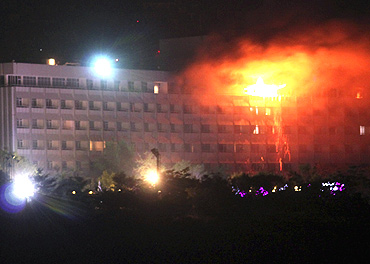
At the same time, it would be possible to term the 19 August attack as an operational failure by the Taliban, because of the two following reasons.
Firstly, considering the fact that the Taliban employed about nine suicide attackers for the attack, the killing of nine people in the end which included no British national would have disappointed the extremist outfit.
Victims were possibly not the intended targets of the attack. Coming on the day of 92nd Independence Day of Afghanistan from the British, the insurgents would have liked the attack to result in higher fatalities, including that of some foreign nationals.
In any event, even the June 2011 attack on the Inter-Continental Hotel had not claimed too many lives, prompting analysts to conclude that killing too many civilians might not have been the motive of the extremists. It's the 'shock and awe' approach.
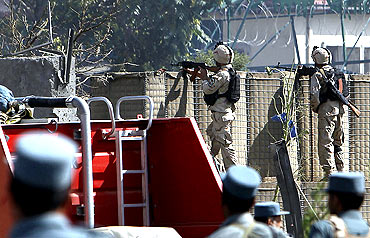
Secondly, the attackers did gain entry into the compound but were effectively prevented from converting the attack into a hostage situation.
Initial reports suggested that the arms and ammunition carried by the attackers were enough to last a full day and probably were meant for an extended operation and not the 'bang and bust' type of incident it was reduced to.
The lone attacker managed to hold out for several hours using armoured doors within the British Council's building and negating repeated attempts by the forces to neutralise him by placing explosives around his location.
Choosing a holiday to carry out attacks is fraught with several limitations, unless it is merely used to convey a symbolic message.
If that was the intention of the attackers, it was delivered loud and clear. Past several attacks across Afghanistan has underlined the insurgent capacity to hit any target of its choice, virtually at any time.
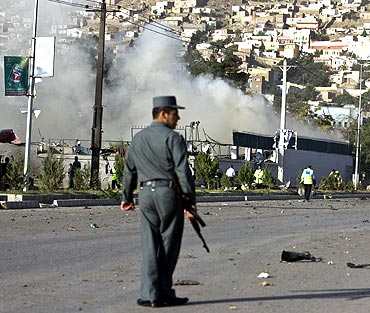
However, at the same time, recent reactions to the attacks by the security forces have underlined the efficiency of the security grid in Kabul.
The ability of the Afghan security forces had come in for much praise during the Inter Continental attack. In case of the 19 August attack, considering the fact that the targets were British nationals, the international forces took the lead.
In the end, the attack was dealt with quite efficiently, especially when it had taken place at the dawn break and could have caught the forces by surprise.
Notwithstanding the fact that Kabul was already on a high alert on the Independence Day, the ANSF with assistance from the international forces did well to contain the attack's impact to a minimum.